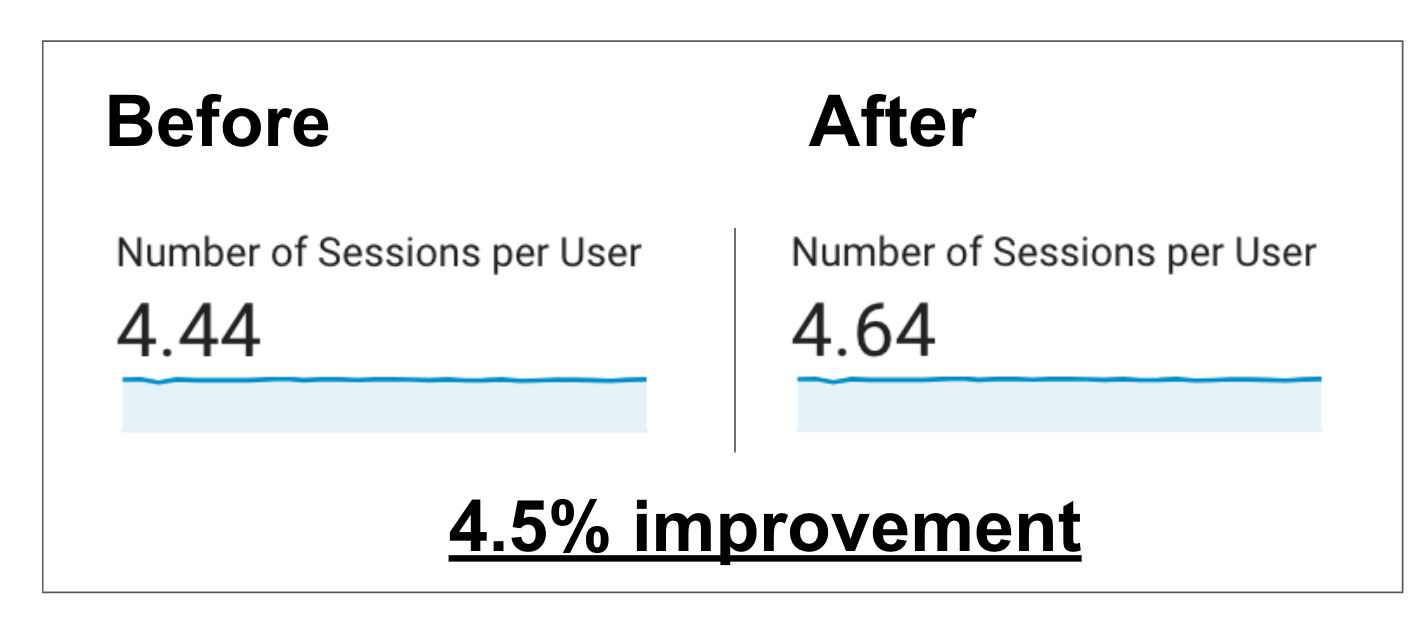Why Email Registration is Dead. How Removing it Improved Retention by a Surprising 4.5%
By Neal Taparia - Last Updated: 09/27/2023

First step to improve retention: Add registration
When building our solitaire site then, a fun side hobby of ours, adding in email registration and account creation was immediately on our roadmap. When we added the ability to create accounts and track past scores, we immediately saw that our sessions per user increased by 5%. It was a solid win!

To encourage more registrations we introduced a leaderboard to see how you performed against other players. You could see how your time and number of moves compared to others who played the same game, and we encouraged sign ups to get your name on the leaderboard. This improved registrations by 22%, and we saw sessions per user increase another 3%.

All these features encouraged users to play more, compete against themselves and others, and return to the site.
Do sending emails move our KPIs?
By now, we had learned that registration was a powerful feature in our game to drive loyalty and retention. Given that we were collecting emails as part of our standard registration process, we naturally thought emailing our user base, which had reached over 15,000 users, could naturally drive more return usage.
We started emailing our users to play a new game of the day feature we introduced. Open rates were a solid 17% on average, but click through rates to the game were 1%. This meant it drove about 26 more users to our site (15,000 * 17% * 1%). Moreover, these could have been users who would have gone back to Solitaired whether they read our email or not.
We saw a 0.5% improvement in returning users, but when we stopped sending emails, this didn’t change suggesting the modest improvement was just noise.
Removing email registration
While registration, saving accounts, and leaderboards improved retention, sending emails clearly did not.
I was watching my sister play, who had become a solitaire addict after she QAing the game. She was obsessed with beating her personal bests and getting high scores for the game of the day. When I watched her play though, quizzically, she had not registered for an account.
I asked her why, she said she just didn’t want to give her email away and get bombarded by more emails. I was dumbfounded, because after all, her brother (me), was the co-founder of the site and yet she still had these concerns.

The lightbulb went off. Since sending emails did not provide value, and if anything was an additional cost, what if we just asked for a username. While this creates issues with password recovery, we thought this would drive up registrations and improve retention. We also have a long term cookie so users wouldn’t have to login again.
When we changed email sign ups simply to usernames, we saw registrations increase by a huge 36%! More importantly, we saw return users increase another 4.5%.
This meant email registration was holding us back from driving retention.

Digging in further, we're also seeing return visitors playing more games like Freecell, Spider Solitaire, Klondike Solitaire, and even different types of games like Mahjong and Hearts. Leaderboards and simple registration have encouraged users to try new games.
We assume email is valuable
Depending on your site and space, email surely can be valuable. For ecommerce sites, you can send targeted emails with special offers, for example.
Most of us assume email is beneficial to our businesses, and we rarely test to see if that’s the case. We have it because it gives us an owned channel to reach out and engage our users whenever we want.
However, we're forgetting a key fact: most of us also hate emails from commercial sites. They clog our inbox, and we instinctually either ignore or delete them. Every once in a while we might open one of those emails up, and even more rarely, we might click the call to action in the email.
Ask if requiring email addresses really moves important business metrics for your site. Sometimes they do. In our case, it just created a poor user experience which we’re now happy to be rid of.
About the author

